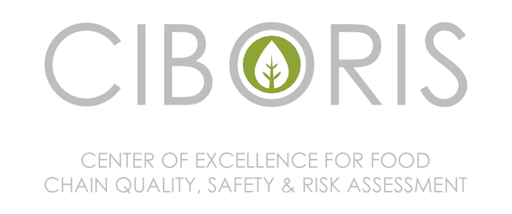Development of data-driven food fraud detection
Short description
- Ciboris, the Center of Excellence for food chain quality, safety and risk assessment
- Innovation company in the international Primoris Holding
Work performed:
- Developing machine learning techniques to detect fraud in the food chain
Added value:
- Making efficient use of modern large data-generating analysis tools
- Identification of food authenticity markers
Cooperation of Ciboris and ML2Grow for the detection of food fraud in oregano and rice
Ciboris (partner of Primoris Holding) performed a research project on food fraud in oregano and rice, as examples of spices and herbs and cereals, in collaboration with ML2Grow, Ghent University and CRA-W (Centre Wallon de Recherches Agronomiques). Food fraud is an important issue in the food industry and is attracting much attention from authorities around the world. Targeted approaches do not offer a complete solution when it comes to authenticity analysis; non-targeted approaches are more interesting to solve food fraud issues. Several analytical techniques, i.e. spectroscopic techniques as Near-Infrared and Mid-Infrared, Hyperspectral imaging, Gas chromatography coupled to mass spectrometry and Proton-transfer Reaction Time-of-Flight Mass spectrometry, combined with chemometrics were examined.
Non-targeted analytical techniques result in ‘fingerprints’ of the oregano and rice samples. These fingerprints contain a lot of data, which are difficult to handle.
The Gaussian Process Latent Variable Model (GP-LVM) was selected as a technique and applied to obtain a reduced two-dimensional space, before building the classification models, which was successfully done by ML2Grow. Data fusion experiments were also successfully undertaken. In figure 1, the GP-LVM plot for origin assessment for oregano with NIR is displayed. Different dense clusters from different origins (Italy, Israel, Turkey and South America) can be seen in the GP-LVM plot. For oregano, origin assessment and batch-to-batch control were successfully done. Adulteration can be detected in oregano from 10% on. For rice, classification models for the origin and variety assessment were successfully built.

Fig.1. GP-LVM plot for geographical origin assessment on NIR-data: oregano samples originating from Italy (blue), Israel (green), South America (yellow) and Turkey (red).
About Ciboris
Ciboris is a Center of Excellence for food chain quality, safety and risk assessment. The added value of Ciboris is that their advice to agro-food companies and organisations in the agro-food chain is based on the combination of 3 different elements which makes our advice unique and appoints Ciboris as a reliable partner in topics related to food quality, food safety and risk assessment along the food chain.
- Scientific knowledge regarding quality management systems, sampling plans, food fraud and risk assessment in the agro-food chain
- Legal status regarding hygiene and food safety in the agro-food chain
- Implementation of quality management systems in actors of the agro-food chain
Companies and consumers are regularly confronted with reports about food fraud/authenticity. The most famous food scandal in recent years is probably the horsemeat affair, the fipronil crisis, etc. Because of such incidents, consumer confidence is under pressure, but it also costs food companies a lot of money.
The government (EU level) responded with amended legislation, the establishment of the EU Food Fraud Network and the Food Fraud Knowledge Center. Furthermore, it is advisable for food companies to perform a vulnerability assessment to food fraud for raw materials and their process and to draw up a control plan to reduce such risks. Ciboris has its tool available to perform such analysis and this can be applied on your company level and further integrated into the food quality systems. Further, advice on analytical methodology, with its pro and contra, can be given to interested companies.
ML2Grow, with its broad experience in machine learning, was for us an ideal partner in this project to handle this big data.
